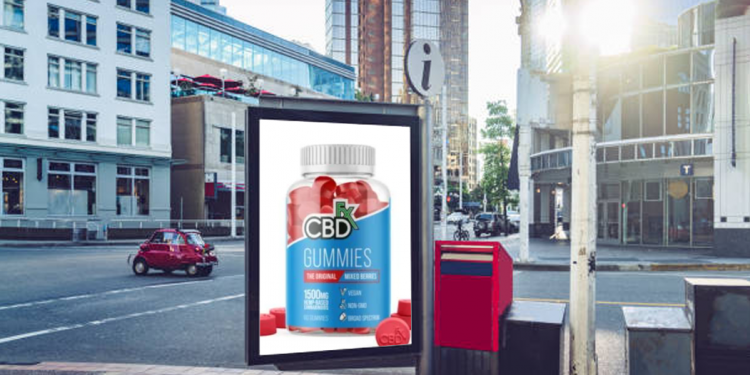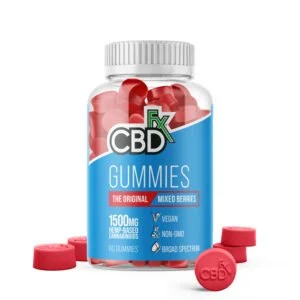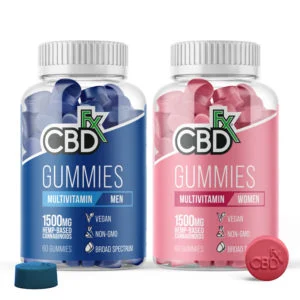Ontario is a province located in Canada. In terms of area, it stands second after Quebec. Ontario is also the wealthiest province of Canada. The economy and politics of Canada depend a lot on Ontario. The territory works with similar laws as that in Canada.
The journey of CBD legalization in the province is full of ups and downs. You can purchase CBD products from sites, such as https://cbdfx.com/collections/cbd-gummies/. But before that, you should understand the laws and limitations.
Through this article, you will know the past of CBD legalization in Ontario and its present status.
Is CBD Legal in Ontario?
Canada is among the list of states that allow marijuana and hemp products for medical and recreational use. That means, in Ontario, you can purchase CBD gummies from any dispensary or site without a medical prescription. Here are a few more issues to know about the legal status of CBD in Ontario.
- The flow of Cannabis in the Ontario market is affected by the Cannabis Act. Under it, industrial hemp and Marijuana are legal in Canada ( so in Ontario also it is legal). However, not everyone can sell it. Only licensed retailers and processors are allowed to produce, extract, and sell CBD.
- With legalization comes restriction. While it is easier for people living in Canada to purchase CBD, it is difficult for companies selling CBD gummies or any other product. They need to clear a lot of legal hoops to sell their product in the Canadian market. It is one of the primary reasons why products of the several UK or American companies are not available in Canada.
- The Canadian government controls the pricing, advertising, labeling, and storage of CBD. So, to sell CBD in Canada, a company has to go through a complicated application process that might take several months. Also, the process is costly. Thus, many startups fail to make space in the Canadian market.
- From the viewpoint of consumers, these restrictions are good. It ensures that the companies or sites that are selling products in Canada are trusted ones.
If you want further details on the legal status of CBD gummies in Ontario, you should know about Cannabis Act. The next section will help you.
The Cannabis Act
While campaigning for the 2015 elections, Canadian Prime Minister Justin Trudeau assured to allow the use of Marijuana for recreational use. He fulfilled his promise and, in October 2018, amended the criminal code and Controlled Drugs and Substances Act to bring the Cannabis Act into Effect.
Before this law, it was illegal to purchase or sell CBD products in Ontario unless authorized for scientific or medical use. Under the Cannabis Act, there are some other regulations also. Some of them are:
- Only people above 19 years of age can purchase CBD products in most provinces of Canada, including Ontario. Only in Quebec and Alberta, the legal age is 18.
- At a time, you can only have 30g of CBD with you in public. The amount is enough for cannabis users in one day. However, it is not that much to sell in the black market.
- Not abiding by the rules can get you in serious trouble. If you have more than 30g, you might face prison for five years.
So, these were some of the things to know about the Cannabis Act. The Act gave them complete control over CBD products. Now, you should also know the brief history of CBD legalization in Ontario.
History of Cannabis Legalization
Here is a timeline of CBD legalization in Canada.
- 1801: Canada’s Lieutenant Government ( LG ) distributed hemp seed among farmers intending to stimulate industry.
- 1822: The Upper Canadian parliament allocated 300 pounds to distribute machinery for hemp production and encourage the local hemp producers.
- 1917: Despite the introduction of new technology that made separating hemp fiber and internal core easier, there was a drop in hemp production.
- The Narcotics Drugs Amendment bill was passed. 1923: 1923 was a turning point in the cannabis industry. It resulted in the Act’s introduction to Prohibit the Improper Use of Opium and Other Drugs, listing Cannabis among the banned drugs such as opium, morphine, and cocaine.
- 1937: The Canadian law enforcement made the first Marijuana seizure.
- 1962: There was a growth in cannabis use. Between 1930 to 1946, there were only 25 cannabis convictions, while in 1962 alone, there were 20 such cases.
- 1968: The number of cannabis users further escalated. The case of cannabis convictions went up to 2300. The majority of consumers were either hippie psychedelic counterculture or college-going students.
- 1969: The Canadian government established the Le Dain Commission or Royal Commission of Inquiry in the Non-Medical Use of Drugs to understand the non-medical use of Cannabis.
- 1972: The Le Dain Commission presented their report. It recommended removing criminal penalties for possession or use of Cannabis. However, it did not legalize Cannabis.
- 1996: The government arrested Terrance Parker for cannabis cultivation, possession, and trafficking. He was found cultivating Cannabis to treat his epileptic seizure. Parker requested the Canadian Charter of Rights and Freedom.
- 2000: The Ontario Court of Appeal gave the ruling in support of Parker. Thereby making the cannabis prohibition unconstitutional.
- 2001: The Canadian government passed the first-ever medical Marijuana Act in the country. The Marihuana for Medical Access Regulations allowed patients with licenses to cultivate Cannabis for themselves or purchase it from a licensed grower.
- 2003: Jean Chretien, a member of the liberal party, introduced the Marijuana Decriminalization measure. However, the bill went out of the table soon. The primary reason was pressure from the United States Drug Enforcement Administration.
After this, a series of events happened that placed the legal status of Cannabis in Canada in the grey space. However, the introduction of the Cannabis act in 2017 and its implementation in October 2018 made CBD legal in Canada.
Conclusion
For CBD enthusiasts, the Canadian market is a dream. The country’s laws towards Cannabis are friendlier than in most other parts of the world. In Ontario, you can comfortably purchase CBD from online or offline stores. The only thing to mind is your age.

















































